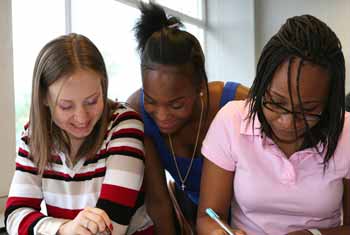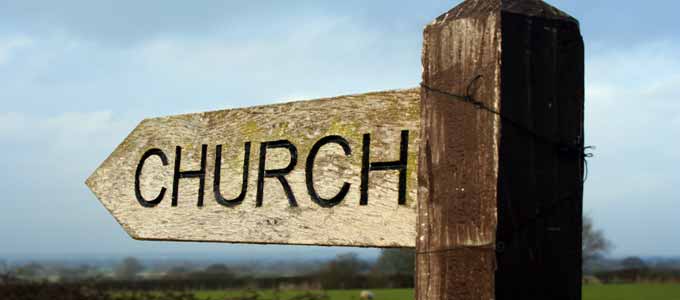by Tiffany C. Chaney
Before Jesus ascended into heaven, he shared with his disciples what has come to be known as “The Great Commission.” These final words from Jesus, found in Matthew 28, gave a foundation for mission for the disciples who shared the good news of Jesus in many different places among many different people.
What would Jesus say?
If Jesus were physically present in our faith communities during conversations about how churches can get more young adults involved, what would Jesus say? The theological foundation for mission for The Intersection, the congregation under development where I serve, is: “Go Welcome All. Speak Life. Live Love.”
As I reflect on some of the challenges that young adults face when connecting with a faith community, I believe that through our theological foundation we can engage in intentional outreach.
Go welcome all.
‘Go therefore and make disciples of all nations, baptizing them in the name of the Father and of the Son and of the Holy Spirit, and teaching them to obey everything that I have commanded you. And remember, I am with you always, to the end of the age.’ (Matthew 28:19-20)
The Great Commission from Jesus to the disciples in Matthew begins with “Go.” The instruction was not to wait where they were or where they felt comfortable. In mission, we are called to go. This means going into the context to which we are called and meeting people wherever they may be, sharing the Good News of Jesus.
As I think about what I heard from young adults who face challenges with attending church on Sunday, I wonder what it would mean to “go” where these young adults are already active in life.
What would it mean to have Bible study or worship during lunch time in an area where there are young adults working during the day? For young adults who are struggling to get their kids to church or who are seeking a time of rest on Sunday morning, what would it mean to have alternative worship times during the week that might be more conducive to their lifestyle? How do we come out of the church building, come out of our typical time slots and meet young adults at the times and in the places where they may already be living life?
Speak life.
‘The Spirit of the Lord is upon me, because he has anointed me to bring good news to the poor. He has sent me to proclaim release to the captives and recovery of sight to the blind, to let the oppressed go free…’ (Luke 4:18)
In the Gospel of Luke, Jesus shares words from Isaiah 61 and then goes on to live them out in his teaching and ministry. In our ministry today, we are called to share the life-giving message of hope, love, and grace of our Lord Jesus Christ. Young adults desire to hear this good news in a way that connects faith and life, and helps the gathered community grow spiritually.
Young adults care about what is happening in the greater community and would like to be a part of a faith community that ministers to the needs of the people. What does it mean to proactively listen for the voice of those who may go unheard in our community and boldly advocate for the voiceless with our community leaders?
Live love.
‘You shall love the Lord your God with all your heart, and with all your soul, and with all your mind, and with all your strength.’ The second is this, ‘You shall love your neighbor as yourself.’ (Mark 12:30-31)
Love God. Love neighbor.
 What does it mean for love to be the true foundation of our ministry? How is our love for God expressed in our worship, in our daily living? What does it mean for love to guide our interactions with each other in our faith community and with those outside our doors? Young adults are watching how we interact with one another.
What does it mean for love to be the true foundation of our ministry? How is our love for God expressed in our worship, in our daily living? What does it mean for love to guide our interactions with each other in our faith community and with those outside our doors? Young adults are watching how we interact with one another.
If we preach love but live gossip, mistreatment of one another, and personal agendas, they are not buying it. Young adults are looking for authentic community built on love, centered in Christ. Anything less than that is not of interest.
As we consider how we love our neighbor, with Jesus’ life and teaching as our example, we know our neighbor is not just the person next to us who we may feel comfortable with, but also the person in need of care who may go unnoticed by the world. How do we show love by building community among and with people around us who may feel disconnected? In showing love, are we able to be patient, kind, and humble? Can we appreciate and celebrate others? Are we able to do good and encourage others to do the same? Are we able to make love the very fabric of our ministry? When our neighbors see us, do they see the love of Christ?
As we seek to build authentic community among young adults, rooted in our faith in Jesus, where is God leading us? What is our commission?
Discussion questions:
1. What Scripture provides a foundation for you as a Christian? How does it speak to the ways you see God active in your life? How does it speak to how you engage people around you?
2. If you are active in a faith community, what is the theological basis for your ministry? How does this basis guide your interaction with young adults and other segments of people who might be missing from your community?
3. Who do you know who might be in some way disconnected from others and could benefit from you meeting them where they are, speaking life to them, and living love?
Closing prayer
Gracious God, help us be a part of creating communities of faith that authentically live your love in the world. Lead us, guide us, show us the way you would have us serve as your hands in the world, living out your mission in our neighborhoods and beyond. Amen.
The Rev. Tiffany C. Chaney is pastor/mission developer of The Intersection, a congregation under development of the Evangelical Lutheran Church in America, located in Dorchester, Mass.


Will use most of this as a devotion at our Membership and Evangelism meeting this morning. How perfect. Thank you.